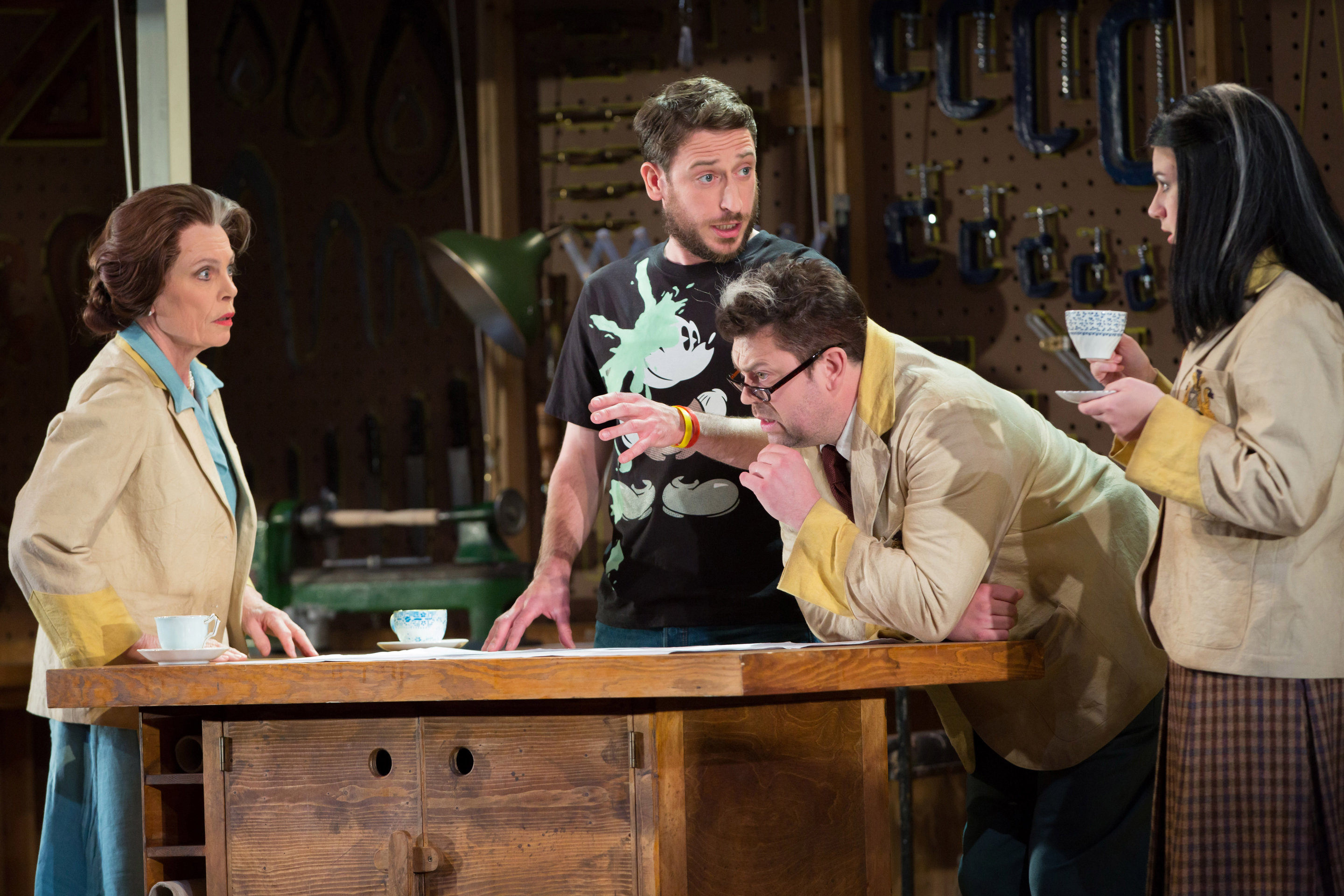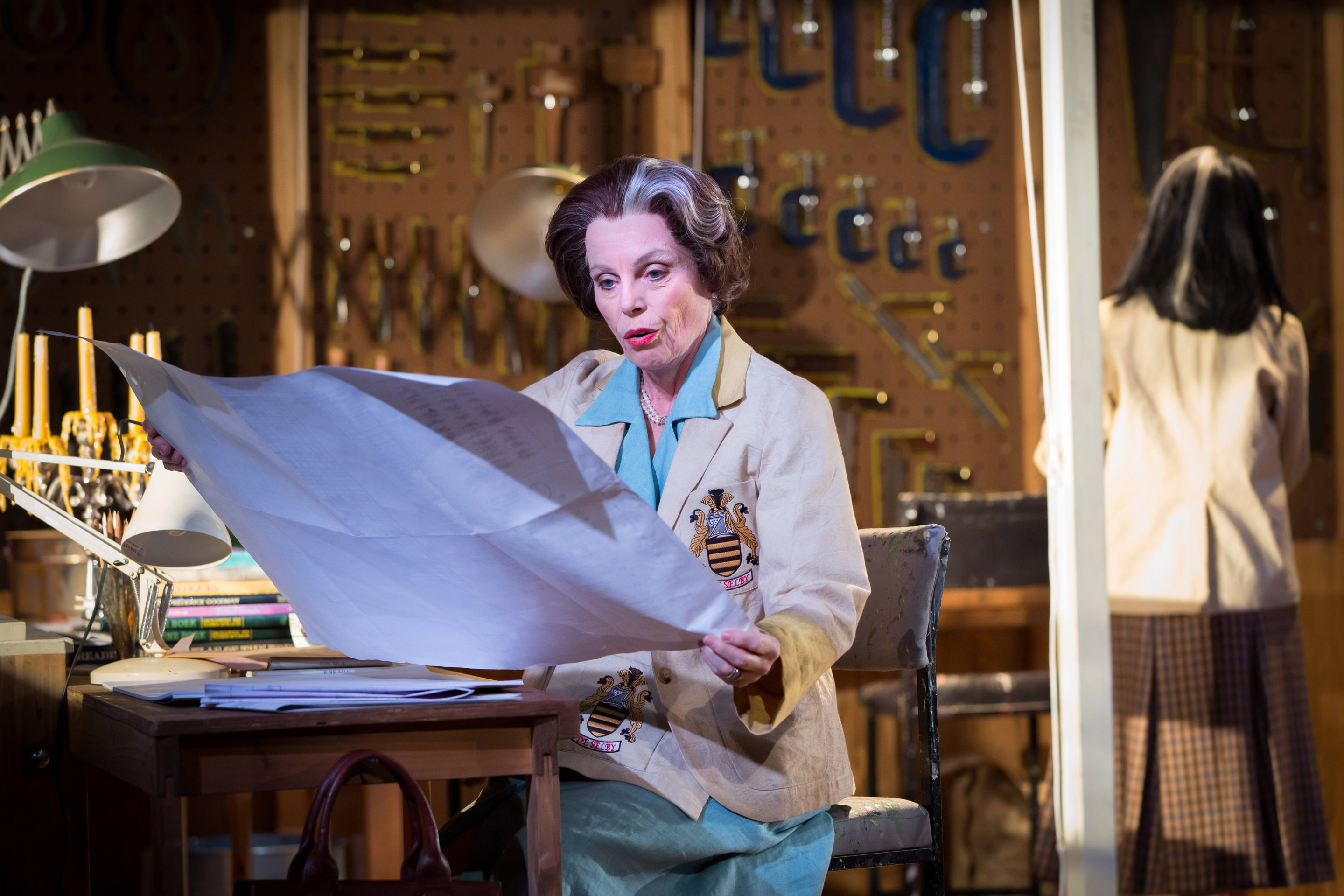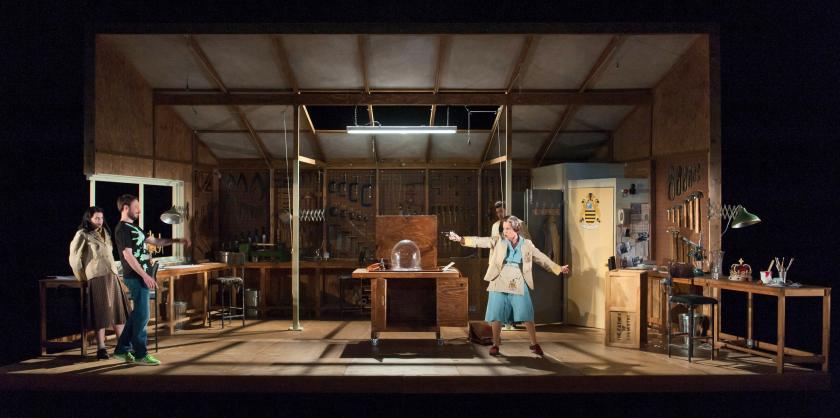How many words would you expect in an average libretto? 10,000? 15,000? Whatever that number is you can triple it and then some for The Virtues of Things – a new opera from Sally O’Reilly and Matt Rogers of astonishing, exhausting, battering wordiness. And with all these extra words what does it have to say? Not a great deal, frankly.
If you’ve read your Saussure – or, failing that, Marquez’s One Hundred Years of Solitude would do – then you’ll be familiar with the concept of "signifiers" and "signifieds". (Yes, a basic knowledge of semiotics really is necessary to get to grips with an opera that insists on calling its characters names like “Parabola” and “Ellipsis”). At their simplest, signifiers are tables, tigers, underwear, while their signifieds are the concepts these objects might represent – hospitality, danger, an adulterous relationship. There’s a gap, we understand, between objects and their significance, words and their meanings – an idea that’s really not as complicated as Rogers and O’Reilly would have us believe.
The Selby family’s prop-making business is thrown into confusion when sickness sweeps through various members, causing them to confuse the operatic fictions they create and their own realities. Forced to bring in young freelancer Eames (Paul Curievici) to help with the workload, the family are further dismayed at his radical modern methods, creating illusions that are dangerously believable.
The cast are superb and outwardly unfazed by the sheer amount going on, gamely throwing themselves at the mountains of text, all the while managing the various bits of visual silliness that director Bijan Sheibani tries to squeeze into the gaps between large chunks of information being exchanged. Rogers’ vocal writing rarely unbends into melody, but both the wonderfully watchable Curievici and soprano Robyn Parton (Peg) manage to discover some beautiful lines in it, even when sitting in the outer reaches of their register. These two also carry the lion’s share of the drama, playing nicely off one another as tragedy and farce begin to collide.
 David Stout (pictured right with Kimm, Curievici and Parton) gets the closest thing going to an aria, and if he makes less impression here than in the recent ENO Figaro then he also has a lot less to work with. There’s a glorious romp of a performance from Fiona Kimm (pictured below) as Ellipsis, revelling in her descent into madness and bringing some much needed darker vocal colours to a score that tends to the bright and high.
David Stout (pictured right with Kimm, Curievici and Parton) gets the closest thing going to an aria, and if he makes less impression here than in the recent ENO Figaro then he also has a lot less to work with. There’s a glorious romp of a performance from Fiona Kimm (pictured below) as Ellipsis, revelling in her descent into madness and bringing some much needed darker vocal colours to a score that tends to the bright and high.
Rogers’ orchestral writing (performed here by the Aurora Orchestra, conducted by Richard Baker) is a little too texturally dominant, with prominent writing for flute, piccolo and saxophone. The results compete with the singers, desperately trying to project endless swathes of recitative, and the ear is caught in the crossfire. There’s too much talk here and not enough song, weighing down vocal lines and reducing the orchestra to a rather literal, descriptive role, forced like the director to occupy the only spaces and silences left in the all-consuming text.
 There are some nice details here: the fictional operas for which the Selbys make their props include the inspired The Tilting Women in which besieged women scheme to cut off their buttocks to feed their menfolk and allow them to withstand starvation and the enemy for that much longer, and there are some pointed truths about the nature of opera and theatre-craft. But generally The Virtues of Things tries to say far too much in too many words and ends up tripping over its own sentences.
There are some nice details here: the fictional operas for which the Selbys make their props include the inspired The Tilting Women in which besieged women scheme to cut off their buttocks to feed their menfolk and allow them to withstand starvation and the enemy for that much longer, and there are some pointed truths about the nature of opera and theatre-craft. But generally The Virtues of Things tries to say far too much in too many words and ends up tripping over its own sentences.
If you do want to spend an evening pondering the relationship between art and reality, words and meaning, or questioning the nature of illusion (while also having some fun) I’d suggest you go and see The Real Inspector Hound, read a Calvino or Coetzee novel, or watch Mulholland Drive before you try your luck with The Virtues of Things.
- The Virtues of Things at the Linbury Studio Theatre until 6 May














Add comment